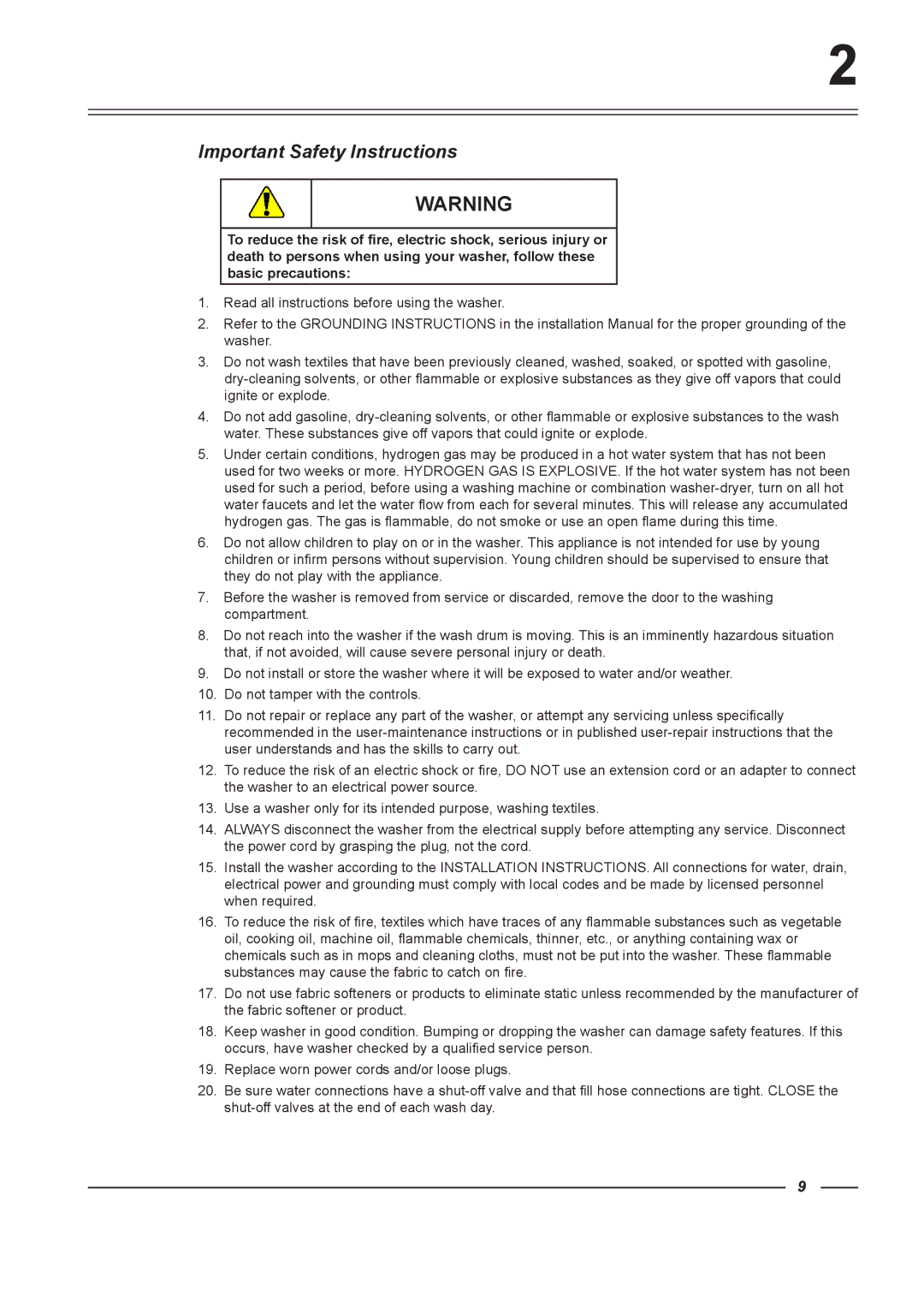
2
Important Safety Instructions
WARNING
To reduce the risk of fire, electric shock, serious injury or death to persons when using your washer, follow these basic precautions:
1.Read all instructions before using the washer.
2.Refer to the GROUNDING INSTRUCTIONS in the installation Manual for the proper grounding of the washer.
3.Do not wash textiles that have been previously cleaned, washed, soaked, or spotted with gasoline,
4.Do not add gasoline,
5.Under certain conditions, hydrogen gas may be produced in a hot water system that has not been used for two weeks or more. HYDROGEN GAS IS EXPLOSIVE. If the hot water system has not been used for such a period, before using a washing machine or combination
6.Do not allow children to play on or in the washer. This appliance is not intended for use by young children or infirm persons without supervision. Young children should be supervised to ensure that they do not play with the appliance.
7.Before the washer is removed from service or discarded, remove the door to the washing compartment.
8.Do not reach into the washer if the wash drum is moving. This is an imminently hazardous situation that, if not avoided, will cause severe personal injury or death.
9.Do not install or store the washer where it will be exposed to water and/or weather.
10.Do not tamper with the controls.
11.Do not repair or replace any part of the washer, or attempt any servicing unless specifically recommended in the
12.To reduce the risk of an electric shock or fire, DO NOT use an extension cord or an adapter to connect the washer to an electrical power source.
13.Use a washer only for its intended purpose, washing textiles.
14.ALWAYS disconnect the washer from the electrical supply before attempting any service. Disconnect the power cord by grasping the plug, not the cord.
15.Install the washer according to the INSTALLATION INSTRUCTIONS. All connections for water, drain, electrical power and grounding must comply with local codes and be made by licensed personnel when required.
16.To reduce the risk of fire, textiles which have traces of any flammable substances such as vegetable oil, cooking oil, machine oil, flammable chemicals, thinner, etc., or anything containing wax or chemicals such as in mops and cleaning cloths, must not be put into the washer. These flammable substances may cause the fabric to catch on fire.
17.Do not use fabric softeners or products to eliminate static unless recommended by the manufacturer of the fabric softener or product.
18.Keep washer in good condition. Bumping or dropping the washer can damage safety features. If this occurs, have washer checked by a qualified service person.
19.Replace worn power cords and/or loose plugs.
20.Be sure water connections have a
9
